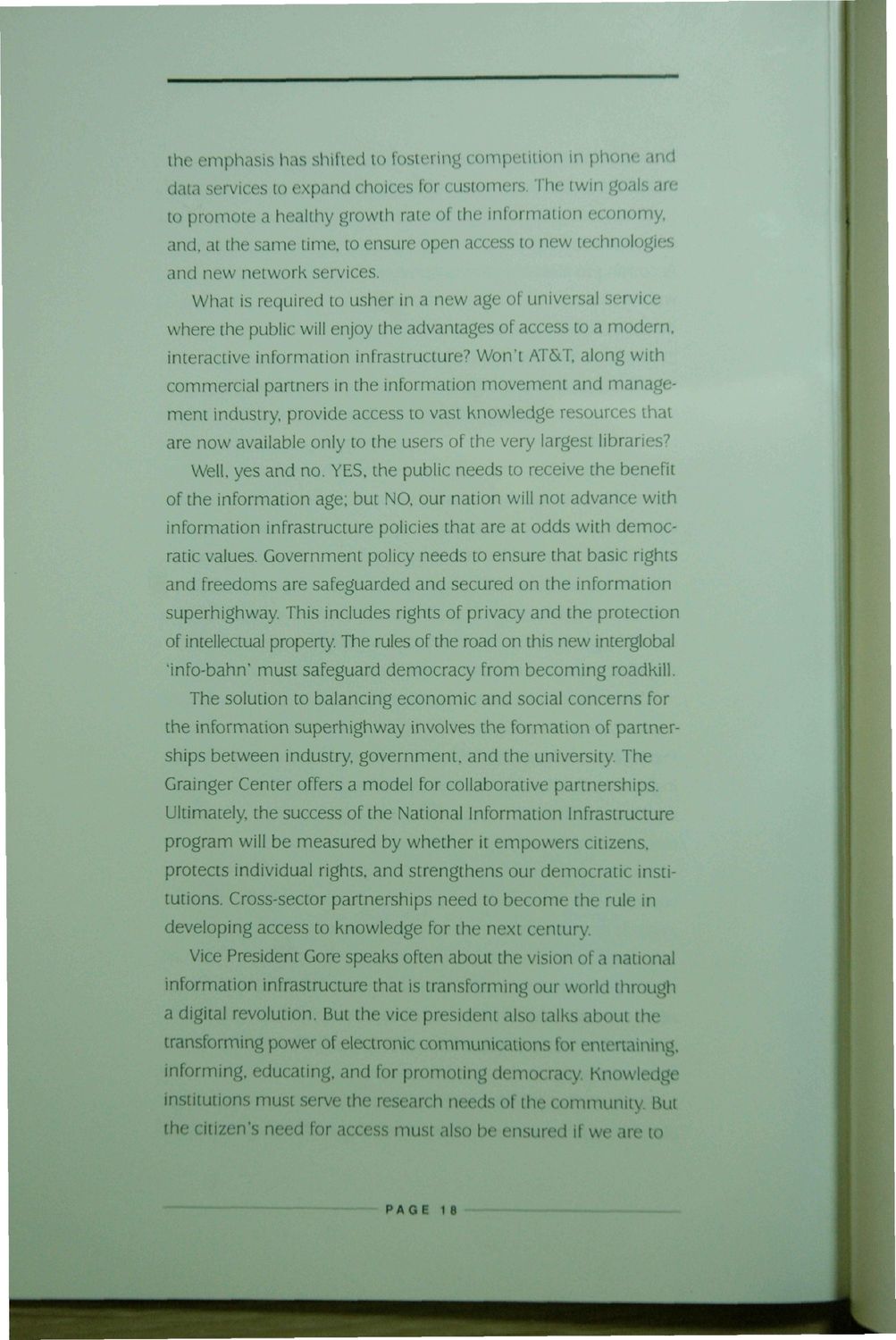| |
| |
Caption: Dedication - Grainger Engineering Library Symposium
This is a reduced-resolution page image for fast online browsing.

EXTRACTED TEXT FROM PAGE:
the emphasis has shifted to fostering competition in phone and data services to expand choices for customers. The twin goals are to promote a healthy growth rate of the information economy, and, at the same time, to ensure open access to new technologies and new network services. What is required to usher in a new age of universal service where the public will enjoy the advantages of access to a modern, interactive information infrastructure? Won't AT&T, along with commercial partners in the information movement and management industry, provide access to vast knowledge resources that are now available only to the users of the very largest libraries? Well, yes and no. YES, the public needs to receive the benefit of the information age; but NO. our nation will not advance with information infrastructure policies that are at odds with democratic values. Government policy needs to ensure that basic rights and freedoms are safeguarded and secured on the information superhighway. This includes rights of privacy and the protection of intellectual property. The rules of the road on this new interglobal 'info-bahn' must safeguard democracy from becoming roadkill. The solution to balancing economic and social concerns for the information superhighway involves the formation of partnerships between industry, government, and the university. The Grainger Center offers a model for collaborative partnerships. Ultimately, the success of the National Information Infrastructure program will be measured by whether it empowers citizens, protects individual rights, and strengthens our democratic institutions. Cross-sector partnerships need to become the rule in developing access to knowledge for the next century. Vice President Gore speaks often about the vision of a national information infrastructure that is transforming our world through a digital revolution. But the vice president also talks about the transforming power of electronic communications for entertaining, informing, educating, and for promoting democracy. Knowledge institutions must serve the research needs of the community. But the citizen's need for access must also be ensured if we are to PAGE 18
| |